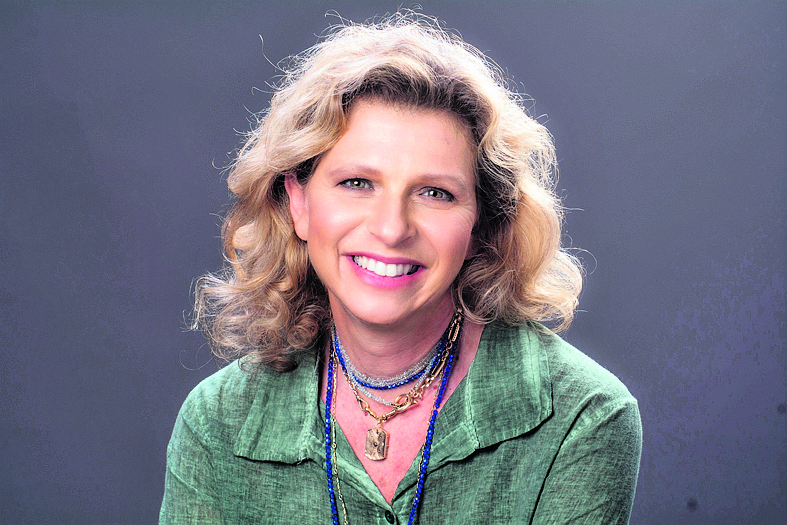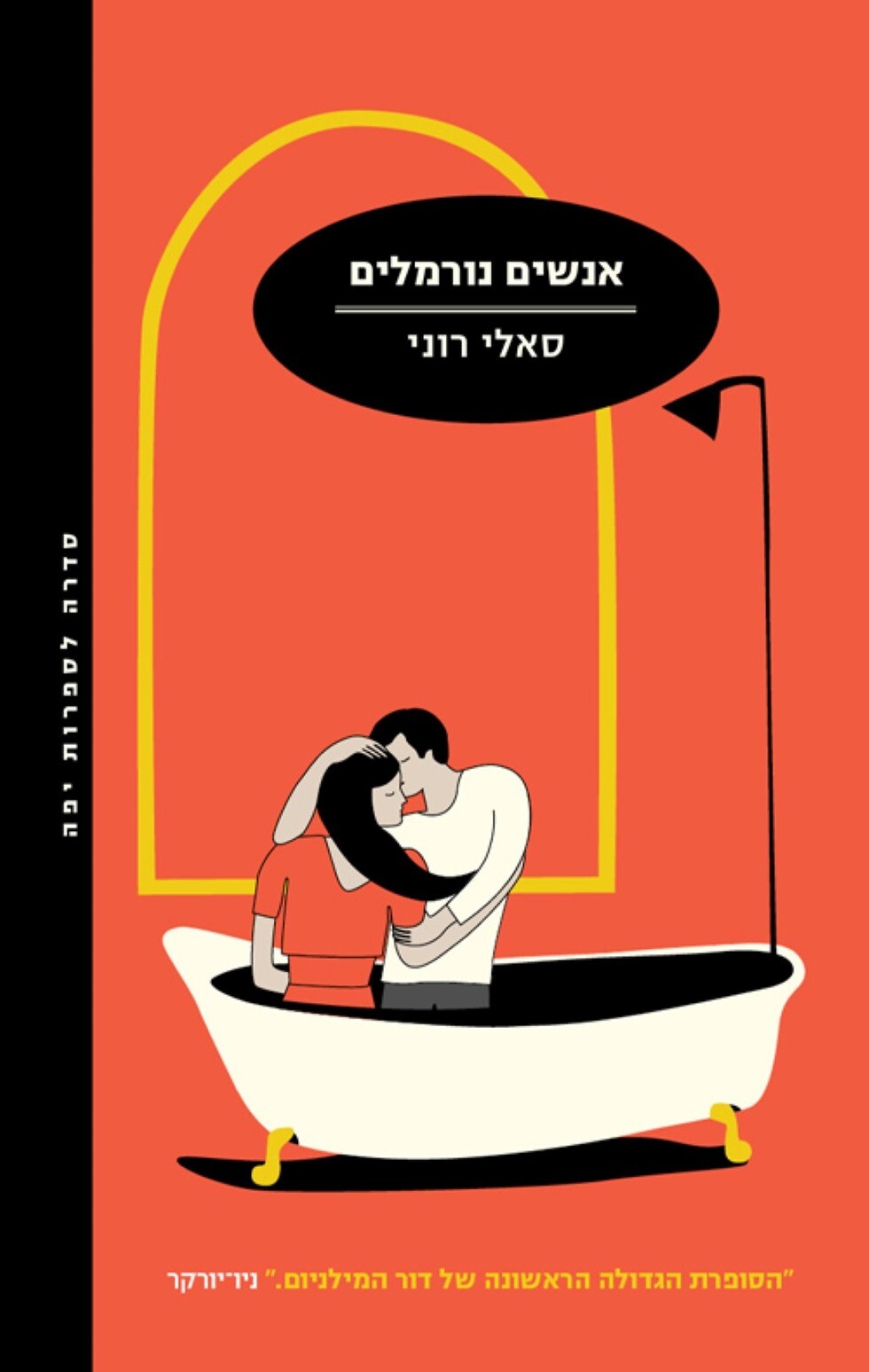Sally Rooney, Shalom
In the world of international publishing, literary agents are tasked with the communication between authors and the publishers who translate their work into foreign languages. Direct contacts with authors, when it occurs, usually takes place after the acquisition of the rights is concluded during literary fairs and festivals. Thus, you and I have never met and so allow me first to introduce myself.
My name is Ornit Cohen-Barak and I edit a literary series in which "Conversations with Friends" and "Normal People" were published in Hebrew translation. My job is to identify books to translate and then oversee the entire process till they are published. My literary series includes over 70 published books from four continents, 30 countries and 25 languages, which were written by 40 authors, some of whom I believe you are familiar with: Cormac McCarthy, Karl Ove Knausgård, Julian Barnes, Burhan Sönmez, Louise Erdrich, Gaël Faye, Leïla Slimani, Donna Tartt, Zadie Smith, Oscar Wilde, Stefan Zweig, James Baldwin and Alice Munro.
The voices of Connell and Marianne and of Frances and Bobbi, whom you brought to life on your keyboard, echoed other literary heroes and heroines who were victims of civil war, political persecution, gender exclusion, and other forms of discrimination. They also echoed the voices of others who seek to better understand themselves and the world around them.
Countries have borders. Published stories don't. That is why I chose to work with translated fiction which enables me to offer Hebrew readers a wide range of cultural content. In my view, this encourages cross-cultural understanding, enriches our world and allows us an intimate encounter with others as well as with ourselves. All of us who play a part in this kind of encounter, be it the reader or those who bring books to print, strive to promote a dialogue that is defined by curiosity, critical thought, pluralism and tolerance.
During 2017-2018, as I read your books, I thought you succeeded in representing complex characters and conflicts that would interest Israeli readers, in a fresh and credible manner. You describe young people well versed in contemporary neo-Marxist thought as well as identity-based and nationalist politics.
People who are familiar, fluent and confident in the sophisticated political agendas they adopt to help position themselves in society, make good choices and succeed. But there is a divide between what these young people present outwardly and their inner world, and coming face to face with that gap is a rude awakening and a painful realization. In fact, as the plot evolves, the impressive knowledge upon which your characters have come to rely turns out to be not only unhelpful, but often even leads them astray. That is when the value of life's experiences becomes apparent.
It is precisely because the elegant manner by which you were able to write so poignantly about these complex issues that I approached your agents to purchase the rights to your books. They accepted our proposal on your behalf and I entrusted Katya Benovitz with the translation. She is an excellent and very experienced translator and indeed received much praise for translating your two previous books.
It is customary that agents send manuscripts and inform publishers of pending projects. I received no notice about your latest book and when I inquired with the agents, I was told to be patient. Just before your book was to be published in England, I inquired again and was told simply that you did not want your book to come out in Hebrew. "For political reasons?" I asked, and was answered that this was indeed the case.
Over the years I have come across authors who did not want their books published in Israel, all but one of whom was from an Arab country. Some had indicated that they feared harmful repercussions at home and were hoping for more tolerant days. This was not the same.
I admit I was surprised by your decision as there is a difference between legitimate criticism of Israel's policy and an outright cultural boycott. Although I asked your agents, I was not advised as to how to communicate your position, and so nothing was said or done. But in recent days the world has been abuzz with talk of your decision. I have learned the reasons for your refusal to allow the book to be translated and published in Israel, from media reports and will therefore respond using the same medium. I will also offer my perspective on your decision.
Let me be clear. Obviously, it is your right to do with your work as you please and to express whatever views you want. That said, I fear that you have chosen a course that undermines all that culture aspires to. Not only does a cultural boycott fail to advance your expressed cause, it in fact, does the exact opposite.
I have lived almost my entire adult life in Israel; I am the mother of three children. The Israeli-Palestinian conflict is not a theoretical matter for me. I live with it on a daily basis and invest great efforts to understand it. I am well familiar with the historical circumstances that attempted to solve one problem by creating a new one as well as the current circumstances in our region.
I am sad to say that I and my neighbors live in the complicated reality to which we were born and we probably would have all made different choices given the opportunity. Many of us think often about alternative solutions to the current situation and many are politically active in an attempt to influence current policies. Although it is sometimes difficult, we tend to be optimistic about the possibility of change, progress, and cooperation.
Like other complex realities that are not easily explained, this one is also subject to superficial, simplistic and populist slogans. The current culture reinforces platitudes and catch phrases that foster polarization and are often in the service of cynical politics and economic interests. Rather than promoting a relevant dialogue, these polemics contribute to an entrenchment of positions making an exchange of views essentially impossible.
Conflicts are resolved through dialogue. When you turn your back on the opportunity to enrich cultural discourse with your works, you play into the hands of a system that promotes a slim cultural diet and aspires only to profit and demagoguery. I would expect from you the same complex observation in your scrutiny of this conflict that you bestow on your literary heroes.
Ironically, you, who claim that neo-Marxism is a matter close to your heart, by this action, contribute to the exclusion of those you aim to defend. The elites, who speak and read English, will have access to your writings, but those who are like Felix, the character in your new book, will never be able to see their likeness portrayed in a different culture. By refusing to allow the book to be published in Israel, you fail to reach out to the Israeli Felix and fall into the same traps as your characters - Connell and Marianne, and Frances and Bobbi - do.
As to your claim that you would be "proud" to see a Hebrew translation conducted under a special kind of process you invented, in which "rights were sold in a manner consistent with the institutional boycott guidelines of the BDS movement" - with all due respect, this is an unattainable proposition and therefore meaningless. Moreover, the fact that you have agreed to have your books translated and published in countries where there are blatant violations of basic human rights casts doubt about the ethics of singling out but one country, Israel, and raises questions about your choices and motives.
I would like to see your third book published in Hebrew. But first I suggest you visit Israel, a country you have never been to, but one whose heterogeneous population you define strictly on the basis of where they live and the language that they speak. You may find that your views are reinforced by the visit, but you may also not. Be prepared though to leave here with more questions than answers.




